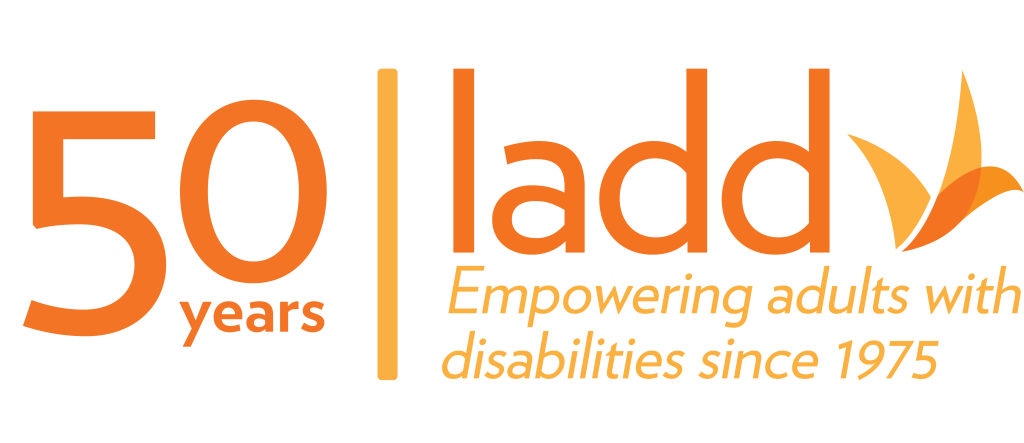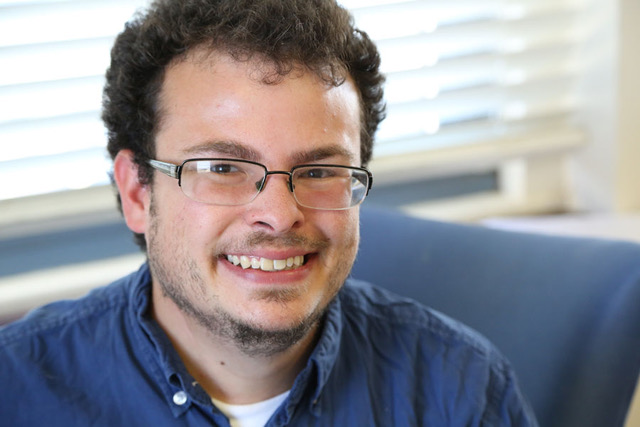self-determination
self-de·ter·mi·na·tion | \ ˌself-di-ˌtər-mə-ˈnā-shən \
Definition: free choice of one’s own acts or states without external compulsion
self-de·ter·mi·na·tion | \ ˌself-di-ˌtər-mə-ˈnā-shən \
Definition: free choice of one’s own acts or states without external compulsion
Jason Harris, LADD’s Director of Strategic Operations, has a master’s degree in disability studies from Syracuse University. He is passionate about making the world a better place for people with disabilities, and he brings both his intellect and his infectious enthusiasm to his role at LADD. He is an autistic adult with an easy smile and a generous spirit.
Jason believes that the current model of support for people with disabilities – a model focused on protection and compliance – needs to change to one of supported decision-making. From Jason’s perspective, the protectionist approach is about making sure that “no one gets hurt”, and the compliance focus is built from a point of view that “someone else knows what’s best.”
Jason shares, “While much of the current system was set up with good intentions, today’s model often fosters a belief that people with disabilities can’t do things, when in fact it is often the method of conveying directions that may be the problem. Perhaps too much information is being conveyed at one time or the language or examples used to teach make the task seem overwhelming or not doable. It is important to work with the person in a way that makes sense for them and builds confidence and trust. I have found that the way services are provided don’t always, if ever, support self-determination. Often people (with disabilities, like me) rely on others for our survival, and we do things because we are told to in order to make our staff or our families happy. We end up doing things because we think it’s the right thing for them, and we want to make the people we rely on happy. We don’t necessarily do things because we know it to be right for ourselves; sometimes we “go along to get along.”
Jason believes a model of supported decision-making combined with accountability could be more effective in building independence. “None of us make decisions completely on our own. Supported decision-making is the same thing that other people do, but it just has to be a little different for people with disabilities. Everyone needs someone to bounce things off of, so help me process my choices rather than making the decision for me.”
Jason is clear that this move to a model built on self-determination won’t be easy. “While supported decision making (guiding me through my choices) is a simple concept, it is not as easy as it sounds. I personally struggle with a fear of failure. When I make a mistake, sometimes it makes me think it is because I am not capable. But really, just like anyone, I need the space and support to be able to learn and grow. For me, supported decision-making is about building confidence that I can make decisions. I mean, do any of us make the right decision 100% of the time?! Also, it is important to make sure that even when people make a mistake, they get to try again. If I fail once, I should still be able to try it again, instead of having the freedom taken from me.” Jason continues, “Maybe I take a walk and get lost, which probably wouldn’t happen to me as I have an excellent sense of direction, but it does happen to some people, or maybe I date someone and it ends badly, who hasn’t had those types of experiences? Just because I have a developmental disability doesn’t mean I don’t have the right to make a mistake and learn from it.”
Jason is LADD’s Director of Strategic Operations. He has a master’s degree from Syracuse University in the School of Cultural Foundations of Education with a specialty in Disability Studies. Jason is also the founder of Jason’s Connection, an on-line community connecting over 300,000 people of diverse abilities to information, resources, services, human stories, and each other.

